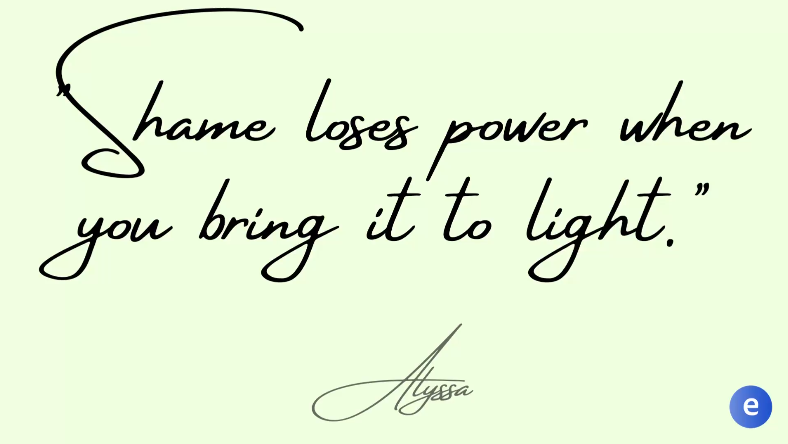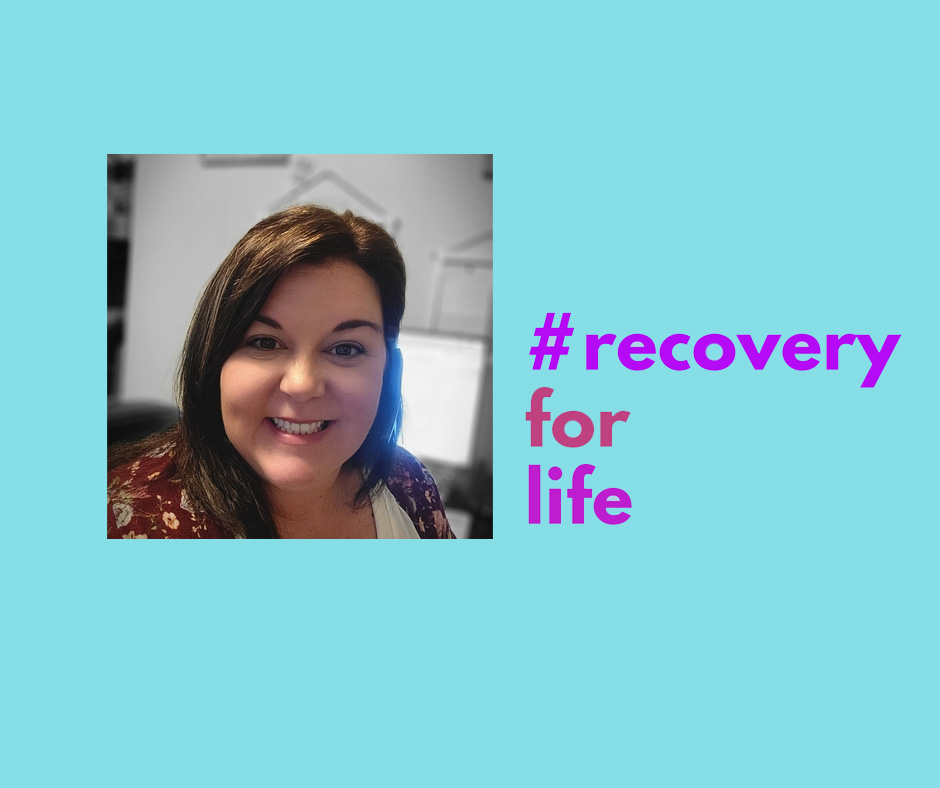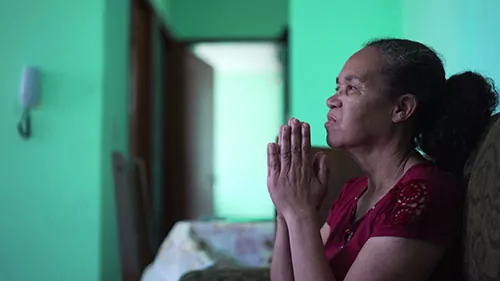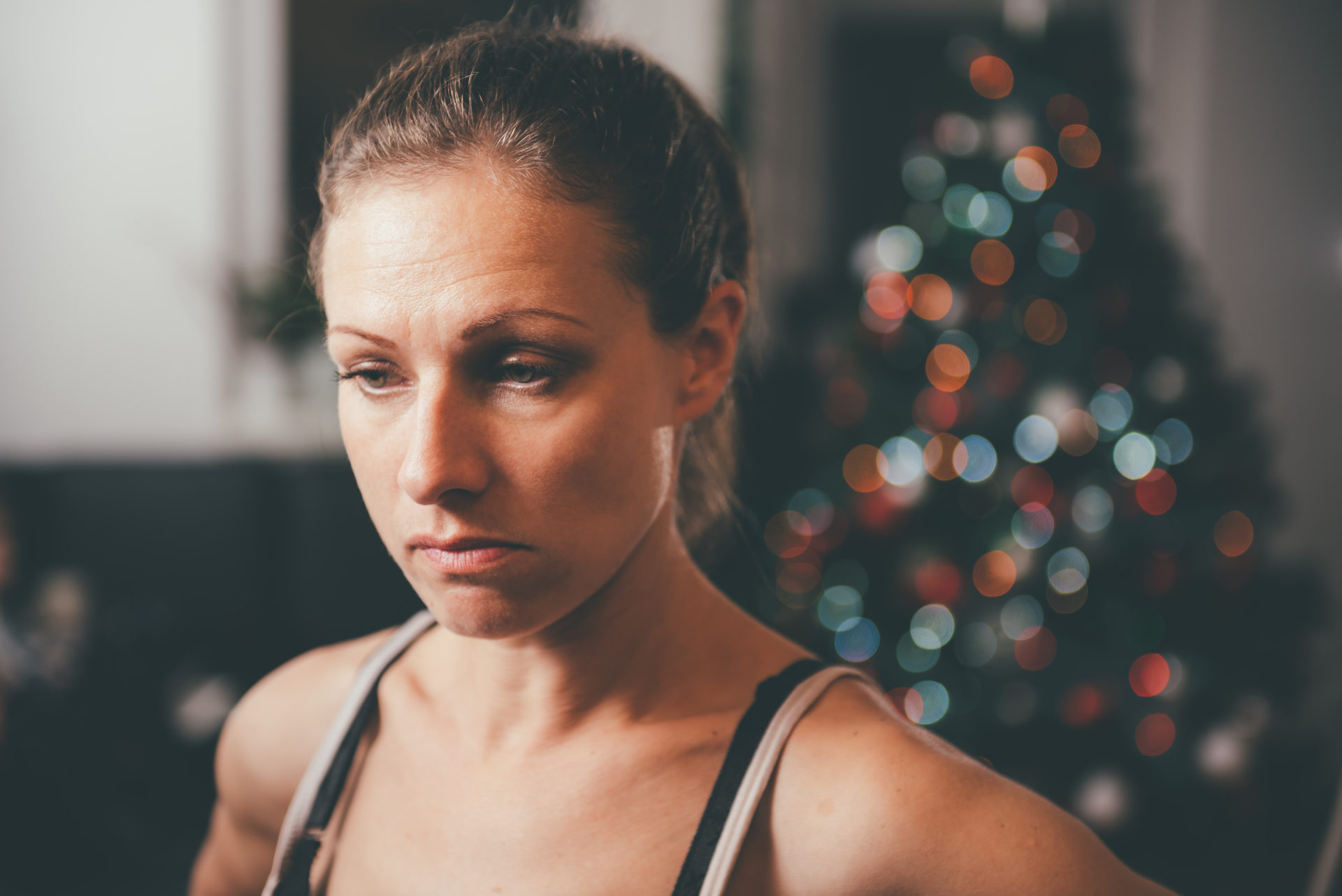Here at Eleanor Health, we aim to honor and celebrate the recovery stories of all, including our own employees! Recovery is so different for everyone, which makes it so important to listen, empathize, and support each other in our separate journeys. In this post, we would like to share and honor the recovery journey of our very own Alyssa Perez, who works as the Patient Outreach and Engagement Specialist here at Eleanor Health.
*Trigger Warning: mentions of suicide and sexual assault
My journey begins like most: with my family background and certain circumstances in my childhood. I have a large family, including an extended family who originated in Mexico. Growing up, I was raised within a deeply-rooted Mexican culture that is naturally religious and dedicated to its nostalgic values. Therefore, the perception of my family by others has always been of high importance because of negative stereotypical views of Mexicans. So when it comes to someone’s health, mental illness and substance use disorder are viewed as a sign of weakness, and personal issues are kept quiet.
I was the first girl out of 14 older male cousins, including my two older brothers. I was pampered, protected, and obsessed over for as long as I could remember. This gave me a high level of confidence, but it also gave me a sense of entitlement. I always felt like I was well protected because of this. So it was difficult to work through something I didn’t want to believe happened to me. I was ten years old when I was sexually assaulted while sleeping over at a family friend’s house, but I do not know who my attacker was. I couldn’t understand why I hated myself so much. I remember feeling strong negative emotions towards myself, like disgust, anger, and shame. I didn’t realize what had happened to me. I’ve found out through trauma therapy the incident was so traumatic for me that I experienced dissociative amnesia. It sounds so crazy to me but at the same time makes sense looking back. This can occur when something of sensitive or traumatic nature is so severe your brain creates a memory gap leaving you unable to recall some parts of the event or all parts. So I continued to live life as though nothing happened with the buried trauma for almost 20 years.
Back in sixth grade, I responded to certain places, people, and experiences in ways that I didn’t understand. Controlling emotions is difficult at the best of times, but for me, it’s even more difficult. Quite frequently, I quickly went from relaxed and at ease to filled with anger or fear, all because of something seemingly small. My intense fear of abandonment caused me to be intensely attached to other people. In the eighth grade, I finally reached out to my mom for help, and she took me to my very first therapy appointment. I sat down and took full advantage of this opportunity. I laid all my feelings and behaviors I was questioning out on the table. When I was done getting all the weight off my chest, the therapist responded, “Don’t you think you’re just acting spoiled?” I was speechless, angry, hurt, and felt judged. I immediately shut down and shut all professional and personal help out. I convinced myself no one would understand, and once again, I was alone.
After that was a whirlwind of self-destructive behavior; when I was 16, I became pregnant with my first son. Right around his first birthday, I tried to commit suicide while suffering from postpartum depression. Shortly after the attempt, I became pregnant again, dropped out of nursing school, and had an abortion. The day I left the clinic, it was never brought up again, and I was to act like it never happened. At 19, I was charged with felony damage to property for a fight with an ex-boyfriend who my son and I were living with at the time. I returned to school, became certified as a Medical Assistant, and worked as a phlebotomist in a clinical trial lab. During this time, I would tell myself that I was just having fun and that blacking out every night was normal. I was underage, going out to bars with a fake ID. I did whatever I wanted. When the pain of reality hit, I simply turned to alcohol, and boom, gone. Bars and clubs became an every night thing, but when I turned 21, I ran into a guy from high school with whom I started a relationship and I had my second son. This slowed me down for a while, but I went right back to doing whatever made me feel good at the time. I avoided my actual feelings and important conversations and ended up hurting my relationship with my son’s father.
In 2017, I left my son’s father and began working in bars for quick money. I was arrested for my first DUI on Thanksgiving, and in 2018 I was arrested for a second DUI and felony possession of a controlled substance. The substance was cocaine, and I didn’t realize a “friend” had put it in one of the pockets of my purse. I continued to surround myself with drug dealers and chose to stay in the same environment I became sick in. Despite the legal troubles, I continued to drink and use cocaine, causing me to test positive three different times. I thought for sure I was going to jail. When I walked into the courtroom to answer for my probation violations, the judge looked at me and said, “You need help. Go get help and see me in 30 days.” I didn’t know it then, but his words would forever stick with me.

Substance use disorder and mental illness run pretty deep within my family, whether they like to admit it. My oldest brother suffers from mental health problems and substance use disorder as well, so he was living in a faith-based transitional living at the time all of my legal stuff was happening. I left the courthouse and drove straight to him that day of court. Mama Judi, the organization’s co-founder, welcomed me with open arms and opened a bed for me right away. I checked into the mental health treatment program partnered with this transitional housing and completed the 30-day treatment. One week before it ended, Mama Judi asked me to work as her assistant. I accepted the job, and although my paycheck was cut in half, it was one of my best decisions. It kept me on track in my recovery, and I was able to begin my career in the recovery field.
Working for a faith-based transitional living also helped me discover my relationship with Christ. I had two spiritual awakenings that happened to me during my treatment that are difficult to explain, but they brought me closer to God. Faith and spirituality are two foundations I’ve built my recovery on, and the other is more on the scientific/psychological side, I guess you could say. I truly believe that when you are in recovery, you need to develop some sense of spirituality. Whether it be Jesus or a Higher Power of some kind, spirituality promotes the healing process by providing purpose, support, and inspiration. I know it helps me to hold myself accountable, and He reminds me I’m not alone.
Fast forward eight months, Mama Judi suddenly passed away from stage 4 pancreatic cancer. A dagger to the stomach doesn’t begin to describe the pain I felt. Being the only one, other than the Founder, that knew the process, I took over her role for the organization. I also began leading groups for newcomers to the program. I earned my Certification as a Peer Specialist and began facilitating groups for a nationwide non-profit organization called SMART Recovery. After one year, I worked for an alcohol and drug treatment center as an Intake Coordinator. From there, I joined an Opioid Epidemic Response Team for local hospitals and mental health treatment centers as their Engagement Specialist. I went back to school and got my Bachelor of Science in Addiction Counseling. Today I work as a Patient Outreach Specialist for Eleanor Health. I am married with a beautiful blended family and a home of our own. My husband is also in recovery, and we couldn’t ask for a better support system. We were able to fight through family court and gain sole legal and sole physical custody of his daughter, who has become the daughter I’ve always wanted. The relationship with my boys is stronger than ever, and I get to be the mom I’ve always wanted to be. My family has since worked diligently to understand mental health and substance use disorder. My mom even took classes for parents of people who struggle with both disorders. I’ve never been closer to my family, and it’s incredible to be able to experience and enjoy life with them sober.
At the end of 2021, I went back in front of the judge who sent me to treatment to ask for my felony to be dismissed. The prosecutor looked over my paperwork, and after a long pause, she said, “Judge, it looks like she completed mental health treatment, but we ordered drug and alcohol treatment as well. We are asking for her to complete a specific drug and alcohol treatment.” I was speechless. I took a risk, and I asked him if I could read him a letter I wrote for him. The letter was a list of my accomplishments, and I thanked him for basically saving my life. After reading the letter, the judge looked over at the prosecutor, the prosecutor grabbed the microphone and said, “Judge, if she has completed all of what she has in that letter, then we see no reason for her to have to complete continued treatment.” I immediately burst into tears. The judge looked at me and said, “Mrs. Perez, I am dismissing your case and backdating your dismissal to the beginning of this month. Keep up the good work.” That day was the first time I had ever had a judge look at me and smile.
There are two things I hope this message will tell people. One, recovery is not just recovering from substances or alcohol, it is so much more than that. Two, recovery is not easy. Yes, I’ve listed all of my accomplishments with pride, but I also struggled every minute while achieving them. Every single day is a struggle because I am wired differently than someone who doesn’t suffer from these disorders, and I’m okay with that today. Self-awareness is the key to recovery. I’m aware of what environments I have to stay away from, I’m aware of the people who are unhealthy for me, I’m aware of how mind-altering substances affect me, I’m aware that I have a mental illness, AND THAT’S OKAY! I read my Bible, go to groups, work in the recovery field, take my medications, and do everything else to keep me on track, BUT I also remember where I came from. We are all one second away from going backward, and you might laugh at this, but it’s okay to fall. You will fall. It’s part of the journey of recovery. The important part is getting back up. You have a choice to stay down or get back up, and when you choose to get back up, it’s crucial to bring something you’ve learned about yourself. Every moment in life is a lesson, and we’re just preparing for the next thing coming. But as long as we continue to be self-aware of who we are, where we are from, and what we are capable of, everything will continue to happen the way it’s meant to happen.
———————————————————————————————————————————————
If you are seeking help with your loved one’s addiction, contact us today or complete our quick contact form below, to speak with an addiction treatment specialist.
If you need help with your substance use disorder, we are here to help you build your confidence and momentum towards the future you want. We provide treatment services for adults with alcohol, opioid, and other substance use disorders. We are currently located in Louisiana, Massachusetts, New Jersey, North Carolina, Ohio, Texas, and Washington.
 Recovery Journey: Shelby Smith
Recovery Journey: Shelby Smith
 The Importance of Gratitude in Addiction Recovery
The Importance of Gratitude in Addiction Recovery
 5 Tips for Supporting People with Addiction During the Holidays
5 Tips for Supporting People with Addiction During the Holidays